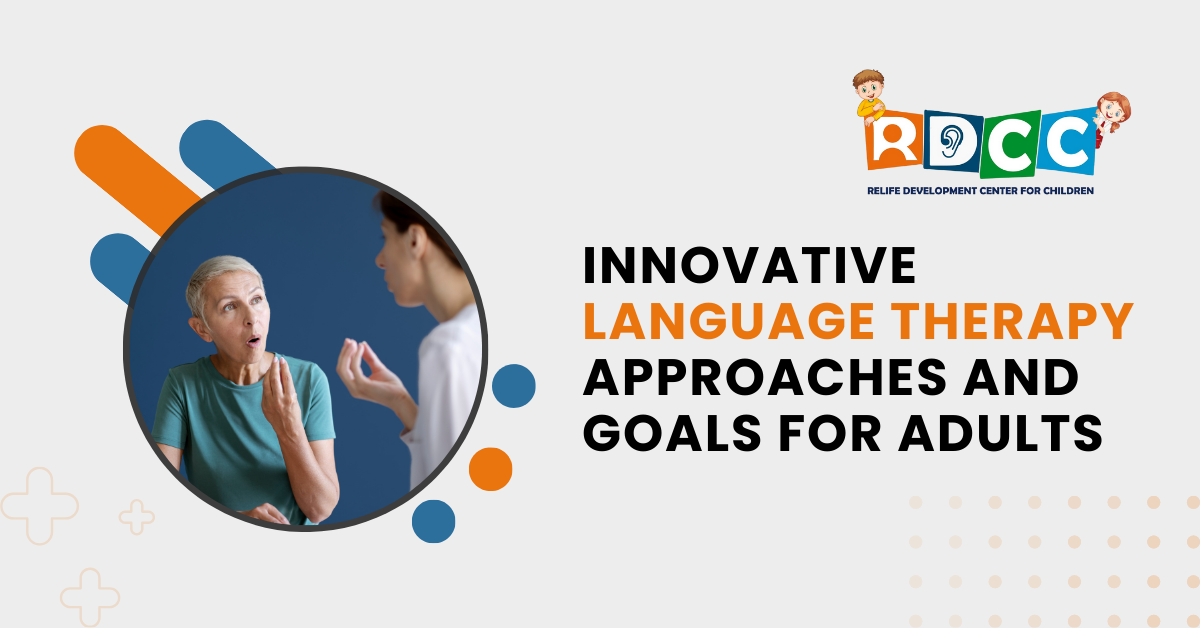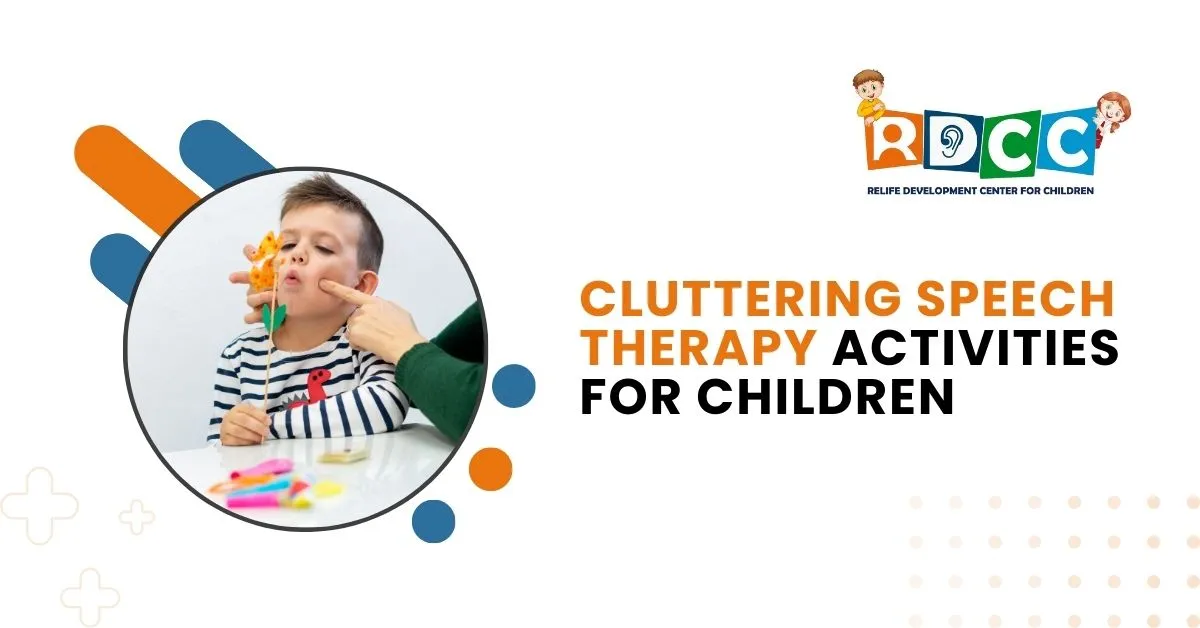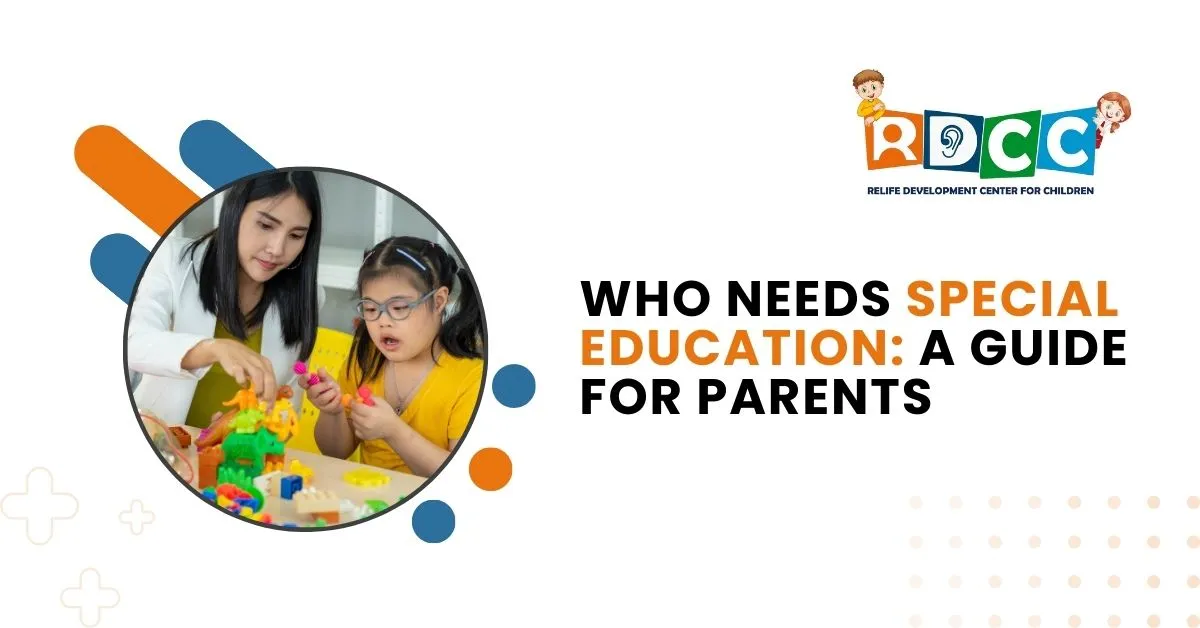
At RDCC Healthcare, Vadodara’s Leading Child Development Centre, we understand that Language Therapy is not just for Children but also crucial for Adults facing Communication Challenges. Effective Language Therapy can significantly improve an Adult’s Quality of Life, Whether Due to Stroke, Neurological Conditions, or other Factors. This guide explores Innovative Language Therapy Approaches and Goals tailored for Adults.
Innovative Language Therapy Approaches
Augmentative and Alternative Communication (AAC)
AAC involves using Tools and Devices, from Simple Picture Boards to Advanced Speech-Generating Devices, to Aid Communication for those with severe Speech or Language Problems. This approach empowers Adults to Express themselves more Effectively.
Computer-Based Therapy
Leveraging technology, Computer-based Therapy uses software and apps designed to improve language skills. These programs offer interactive exercises that target specific language deficits, making therapy engaging and accessible.
Intensive Language Action Therapy (ILAT)
Also known as Constraint-Induced Language Therapy (CILT), ILAT involves intensive practice focused on spoken language. This method encourages patients to use verbal communication rather than compensatory strategies, leading to significant language improvement.
Group Therapy
Group Therapy Sessions provide a supportive environment where individuals can practice peer communication skills. These sessions help Build Confidence, Reduce Isolation, and Foster Social Interaction.
Language Therapy Goals
Enhancing Communication Skills
The primary goal is to improve the ability to understand and use language effectively. This includes speaking, listening, reading, and writing skills.
Increasing Functional Independence
Language Therapy aims to enhance daily communication abilities, enabling individuals to independently perform daily tasks and interact confidently in social and professional settings.
Boosting Cognitive Abilities
Language Therapy often involves exercises that enhance cognitive functions such as memory, attention, and problem-solving, which are closely linked to language skills.
Emotional and Social Well-being
Improving communication skills can significantly impact an individual’s emotional health and social interactions, reducing frustration and enhancing relationships.
Frequently Asked Questions
What is Language Therapy for Adults?
Language therapy for adults addresses communication challenges due to various conditions, improving their language skills and overall communication.
What are the Goals of Language Therapy?
The goals include enhancing communication skills, increasing functional independence, boosting cognitive abilities, and improving emotional and social well-being.
What Innovative Approaches are used in Language Therapy?
Innovative approaches include Augmentative and Alternative Communication (AAC), computer-based therapy, Intensive Language Action Therapy (ILAT), and group therapy.
Who can Benefit from Language Therapy?
Adults facing language and communication challenges due to stroke, neurological conditions, or other factors can benefit from language therapy.
How can I access Language Therapy at RDCC Healthcare?
Contact RDCC Healthcare to learn more about our language therapy services and how we can help improve your communication skills.
Conclusion
At RDCC Healthcare, we are dedicated to providing innovative and effective language therapy for adults. Our tailored approaches and clearly defined goals ensure that each individual receives the support they need to overcome their communication challenges. For more information on our language therapy services, Contact RDCC Healthcare today.




